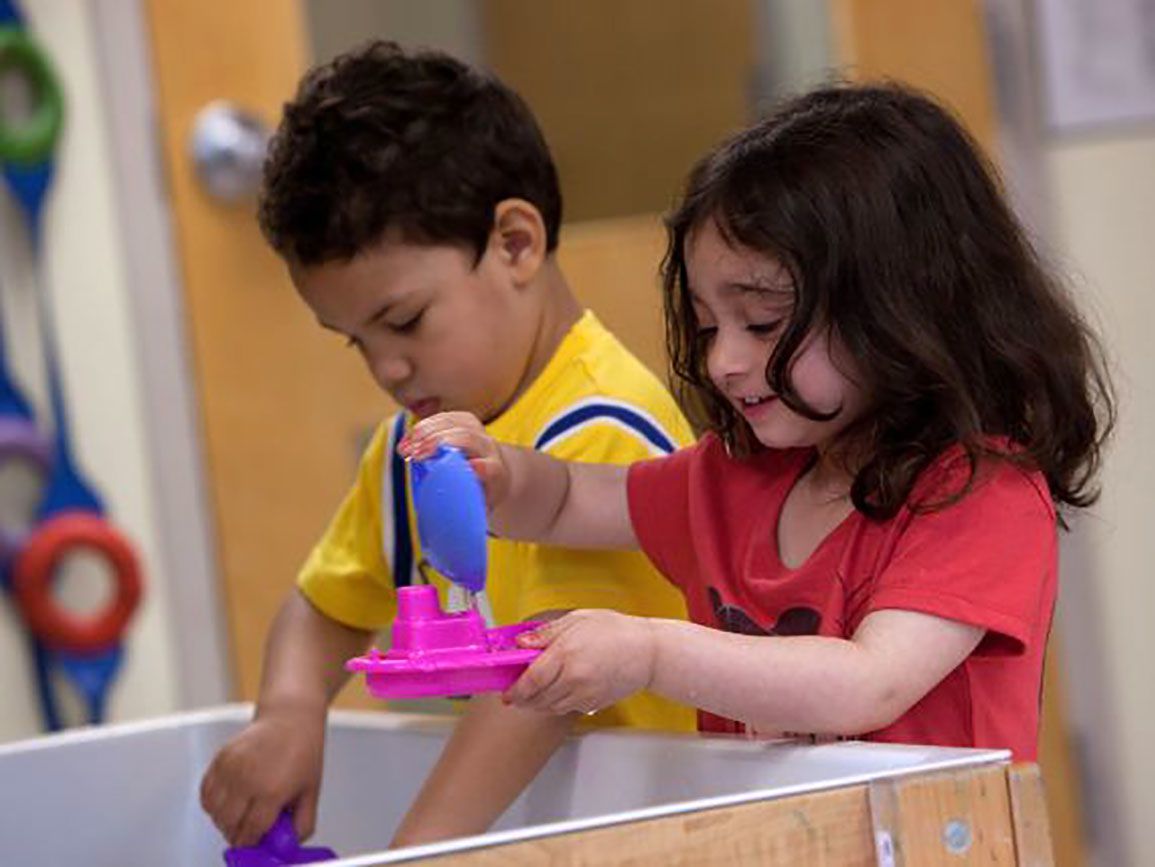Children don't usually make plans to have conversations with us. We have to be physically available to them in order to stimulate conversation with children. If we're with them, we're bound to hear what's on their minds. But if they constantly have to seek us out or wait for our schedules to open up, or if they have to contend with frequent lack of interest or diverted attention, they may stop talking.
So, how can we stay connected by talking with our children and having conversations?
Tips for Communicating with Your Child
Be available to talk. Children are very immediate, especially when it comes to their feelings, emotions, and worries. When your child wants to talk, do your very best to make yourself available. Being available becomes increasingly important as your children grow older, so make sure to start creating a space for children to talk as they become teenagers as well.
Be fully present during conversations. In a multi-tasking world, undivided attention is a precious commodity. Children need parents who listen with their eyes and ears. Turn off the smart phone, computer, tablet, television, or other distractions that dilute the conversation.
Listen to your children in conversations. Often our conversations are one-sided. There are so many things we need to tell and teach our children that we often fall into a pattern of directive monologues. Try just listening instead of just talking to your kids.
Create situations that stimulate conversations. Here are a few ideas for fostering an atmosphere that stimulates conversation and encourages communication with children.
- Appreciate your child's unique personality. Some children are eager to chat. Others need time to open up to conversation.
- Be sensitive to your child's primary needs. If your child is hungry, headed to the bathroom, or just relaxing after a busy school day, it may not be the best time to talk with your child.
- Allow for conversation rituals and individual preferences. Some children may need time to play quietly or hang out in their rooms before volunteering information and answering questions. Many will save their most intimate thoughts for "tuck-in time."
- Do things together. Having a snack at the kitchen table and doing chores together are all good times for conversation. Communicating with kids in the car during daily commutes or long road trips is another way to do things together and engage in conversations.
- Ask questions. Many children need a little prompting or gentle questioning to help them open up and share their thoughts. Ask questions that require more than a yes or no answer. "What do you think?" "How do you feel about...?" "What would you do if...?" "Help me understand..." "Tell me about it."
Show interest by following up. After a conversation, try to follow up. If your child was worried about a math test, ask her, "How did it go?" To remain more positive, avoid, "What grade did you get?" Another way to follow up with previous conversations is to plan activities around your child's interests, such as crafting or bike riding. This not only shows your child that you’re interested in his or her interest, but also that you actually listen when talking with them. Showing interest and listening while communicating with your children will encourage conversation and helps them avoid one word answers.
Other Suggestions for Communicating with Your Children
James D. MacDonald, Director of the Parent-Child Communication Clinic at Ohio State University, offers the following suggestions for communicating with children to help parents have more enjoyable, successful conversations with their kids.
- Communicate for a variety of reasons. Talk about anything with your child, but don't do all the talking. Be sure to share the lead with your child. Talk sometimes about what he just said and at other times about your own ideas.
- Communicate more for enjoyable social contact than to get something done. While there are certainly times to get things done, they are not frequent enough for your child to learn language and conversation. When parents and other adults become more of a "partner" and less of a "boss" during conversations, children enjoy communicating with parents and stay interacting longer.
- Comment and wait. When you make a comment, express what you think and see, without demanding a particular response from your child. When talking to kids, any response the child makes is a "success" and can keep the conversation going if you follow your child's lead.
- Reply to your child's comments. Without our continued attention, many children are not likely to get into a habit of talking with others. Avoid the habit of accepting or listening to any child talk without responding to it.
- Keep conversations balanced. It is normal for children to talk mainly about themselves, but it is important for them to talk about other's ideas as well. Help your child learn to talk about other's interests as well as her own.
- Think of talking as creative play. Unless a child feels free of judgment and failure in an interaction, he is not likely to communicate much of what he knows. Enjoy watching and hearing your child create new ideas.
- Follow rules of social conversations. When your child is in the habit of having conversations, you can then start to show her the basic rules that will increasingly be expected from her. Some of those are: communicate for a response, wait silently, respond to the other person's intent, be clear about what she means, and change her words if not understood.
As parents, we have a primary influence on our children's development of speech and language as well as other literacy skills. And it's really not that complicated or difficult. One of the best and most rewarding things we can do with our children is to simply talk and, most important, listen.
More about Talking to Children
- Why do kids lie? Discover the common reasons why children lie and tips for how to respond to lying.
- How do you talk to your children about tragedies in the news? One mom shares different strategies for her preschooler and young school ager.
- Tips for talking with children about the serious illness of a family member.
- Getting your child to talk about his day can be a challenge. Read one blogger's solution for getting her daughter to open up.
- Communicating with teenagers can be especially difficult. Here are some ways to encourage teenagers to talk to you about what's happening in their lives.





